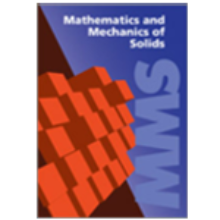Using the non-standard geometric structure proposed by Loos, we present a coordinate-free formulation of the theory for time-dependent finite-dimensional mechanical systems with n degrees of freedom. The state space containing the system’s information on time, position and velocity is defined as a (2n+1)-dimensional affine bundle over an (n+1)-dimensional generalized space-time. The main goal is to present a geometric postulate that characterizes a second-order vector field whose integral curves describe the motions of a time-dependent finite-dimensional mechanical system. The core objects of the postulate are differential two-forms on the state space, called action forms, which are in a bijective relation with second-order vector fields. The requirements for a differential two-form to be an action form allow for a coordinate-free definition of non-potential forces, which may depend on time, position and velocity. Finally, we show that not only Lagrange’s equations but also Hamilton’s equations follow directly as mere coordinate representations of the same coordinate-free postulate.
| Attachments |
|---|


